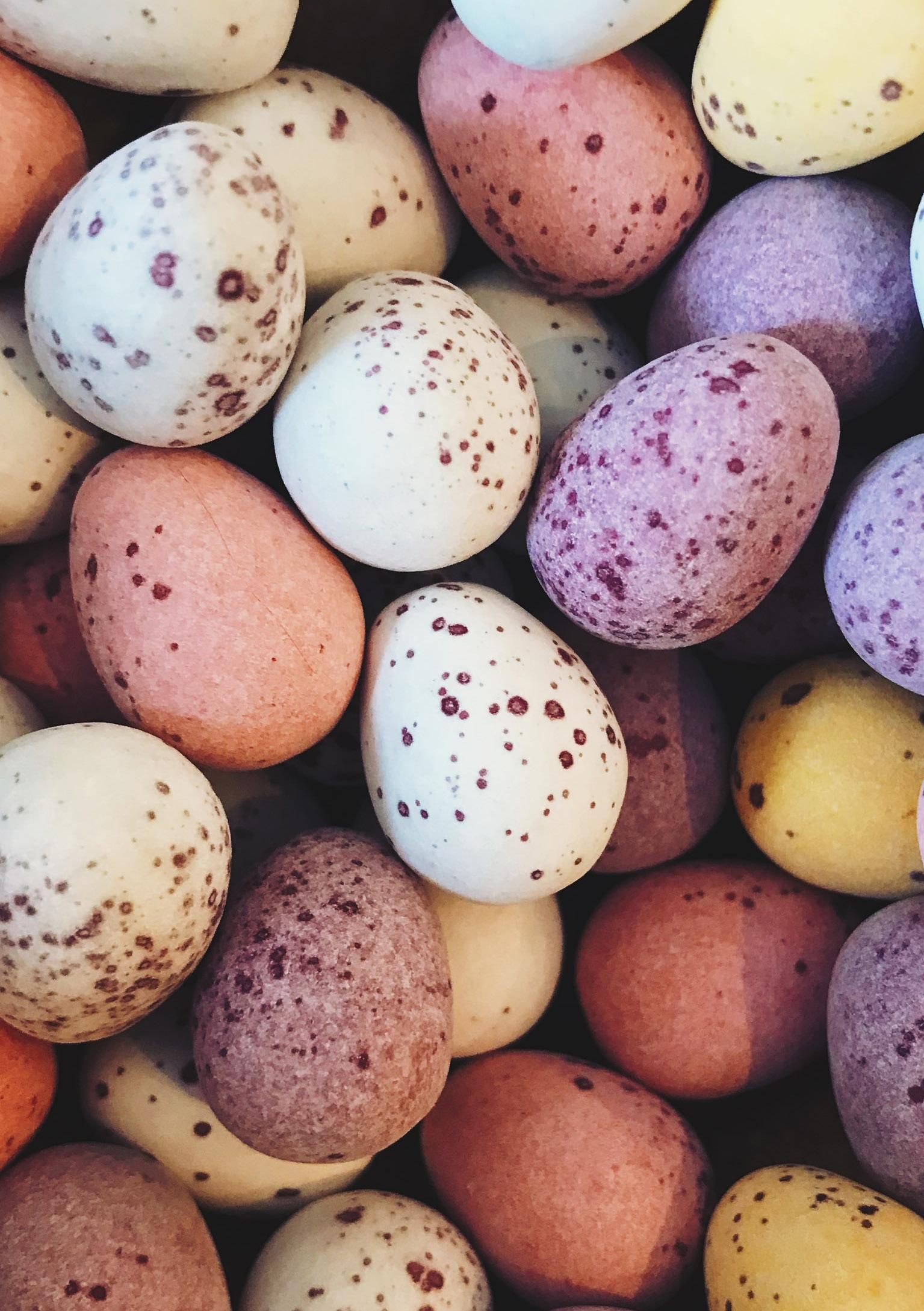
3 minute read
Easter is coming… with chocolate
Easter came… with chocolate!

Advertisement
An important celebration of Christianism, Easter was celebrated on the second of May 2021 in Macedonia. But do you know what is its religious meaning and how it is celebrated in different parts of the Christian world today?
For those who do not know, Easter commemorates the Resurrection of Christ and the belief that he rose from the dead and continued helping people and doing good deeds. Easter is celebrated on Sunday each year because it is the moment when, according to the tradition, Jesus returned to life three days after his crucifixion in Calvary.
There are, however, different ways to celebrate Easter across the globe among Christian communities: in Macedonia, Orthodox Christians are preparing for this holiday several weeks earlier and the preparations involve a forty-day period of fasting, prayers, and penance. When it comes to the fast, these forty days are also known as the Great Lent, and it is a period when many faithful people give up certain types of luxuries as a form of penitence. This fasting includes a dairy free and in some cases also oil free diet. The reason for that is that it is believed that Jesus spent forty days in a desert fasting and praying. That is why Orthodox Christians devote the fasting period to God, showing repentance and high self-discipline. Of these forty days, the most important are the seven last days, also known as the Holy Week, which in fact are the last seven days of the life of Jesus. Considering the importance of this holiday, locals have adopted many rituals and customs that sometimes even seem strange to foreigners but, in fact, represent their devotion. The housewife in a Macedonian Christian family has several duties that she has to do and the most important one of them is dying eggs. Before dying the eggs, the housewife should not be hungry because it is believed that it brings bad luck and diseases.

When the three eggs are ready, the first one is placed near a door or window that looks to the East, so that when the sun rises it shines upon them with the rays of God. One of these eggs will be consumed by each member of the family on Saturday night when the clock hits midnight, and the other eggs will be eaten the following days with salad. On Holy Thursday, housewives prepare all the food required to keep the family going throughout the holy weekend. Good Friday is the day when Jesus was crucified, so Christians in Macedonia avoid eating anything else, but fruit, vegetables and nuts, even fish and oil are omitted in that way they express deep faith in God and Christianity.
In France, Easter has lost a huge part of its religious significance. However, the day that follows Easter is a public holiday. To celebrate this exceptional event, everyone gathers with family around a copious meal consisting of lamb (which symbolizes Jesus Christ’s innocence). And of course, like in Macedonian tradition, eggs and chocolate food constitute a huge part of this event.
The egg is indeed one of the most important symbols of Easter. This latter is an ancient symbol of new life and rebirth. In Christianity it became associated with Jesus’s crucifixion and resurrection. The custom of the Easter egg originated in the early Christian community of Mesopotamia, who stained eggs red in memory of the blood of Christ, shed at his crucifixion.
Yvan Barbeau
Sources: Easter in Macedonia | My Guide Macedonia Pâques en France - Quelles origines ? Quelles traditions ? (agirenfrancais.com) Les fêtes de Pâques et leurs traditions | J’aime mon patrimoine (jaimemonpatrimoine.fr)










